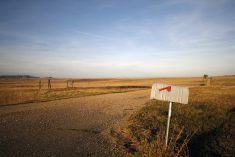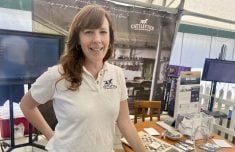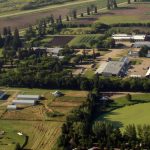Questions to ask yourself before retiring
How will I spend my time?
What do I really like to do?
What will keep me motivated?
Will my finances support my vision of retirement?
Do I want a second career?
Do I want to do volunteer work?
What about working part-time?
How will my family be affected? Resources:
Don’t Be Blindsided By Retirement
by Andrew Bertram and Larry Solway. Bastian Publishing, 2008.
Read Also

Producers aren’t panicking over tariffs and trade threats
The Manitoba Canola Growers Association (MCGA) surveyed its members this spring to get a sense of how trade uncertainty was…
Many of us dream of retirement as the day when we’ll be able to do what we want, not what we have to. We’ll travel more, read more, golf more and spend more time with our families. We’ll relax and, after years of hard work when it always seemed the other way around, we’ll let life come to us, right?
Well, before it gets any later, you might want to introduce your dream to reality, according to these retirement experts.
“For most of us, that lasts about six months before we’re bored,” explains Av Lieberman, president of The Retirement Education Centre Inc., a company in Waterloo, Ont. that has developed a step-by-step retirement planning process that he delivers to corporations.
“You need something that motivates you, challenges you and gives you a reason to get out of bed,” Lieberman explains.
In the old days, people often didn’t live long after retiring but today many of us can expect 25 years or more, adds Lieberman. “That’s a long time to do nothing. You need to plan for this next stage of life,” emphasizes Lieberman.
In addition to income, work provides opportunities for socialization. It provides structure too, along with the knowledge that you’re being useful, plus a sense of status, adds Lieberman.
Your new life after retirement needs to provide at least three of these four benefits, Lieberman says.
While we are bombarded with information on the financial aspects of retirement, Lieberman argues the vision of what you want to do needs to come first. Once you have a vision you can figure out how much money you will need and make the appropriate choices, he explains.
Jim Hughes agrees with Lieberman that you should retire to something, not from something. Hughes did just that when he sold his sold his large Picton, Ont. apple operation after 40 years in the business.
Hughes didn’t leave farming altogether. He just scaled back. He purchased a 25-acre parcel of land where he planted high-density apples, blueberries and strawberries which he sells wholesale, retail and as pick-your-own.
“Too much free time becomes boring,” Hughes says of his choice to continue farming on a smaller scale. “It gives me something to do and I wanted to grow something.” And with the new enterprise came a whole new learning curve. “Besides it gives me a reason to have a tractor. A farmer’s got to have a tractor,” he says with a laugh.
As he approached his 60th birthday, Hughes, who farmed with his brother, made the decision to sell. Neither had children interested in the business. He made his plans for the new operation after much discussion with his wife.
The smaller operation gives Hughes more time off for boating on the weekends. He also joined the local Rotary club, which has given him opportunities to travel within Canada as well as internationally, and to give something back to the community, something he didn’t have time for when he was working full time.
With seven employees during the summer, Hughes acknowledges that he may have gotten overly ambitious with his new operation, but his employees do the manual labour while he manages the operation. He knows realistically he will need to step it down a notch in the next five to seven years. Ideally he’d like to hire a manager so he can pass off more of the responsibility.
While there are those who plan to do nothing but relax in their retirement, on the other extreme are those who can’t even conceive of retiring. This applies to many farmers who are afraid of losing their identity if they retire, says stress and wellness expert Beverly Beuermann-King, who grew up on a dairy farm near Dublin, Ont.
She advises farmers to look at what they will gain when they retire. What will they have time for that they didn’t have time for before? For example, many farmers sacrificed time with their families when their own kids were growing up. Retirement can be an opportunity to spend more time with family, especially grandchildren.
Make a list of what you would like to try and don’t let your fears get in the way, recommends Beuermann-King. “Picture it and have fun with it,” she says. Want to learn to golf? There are















